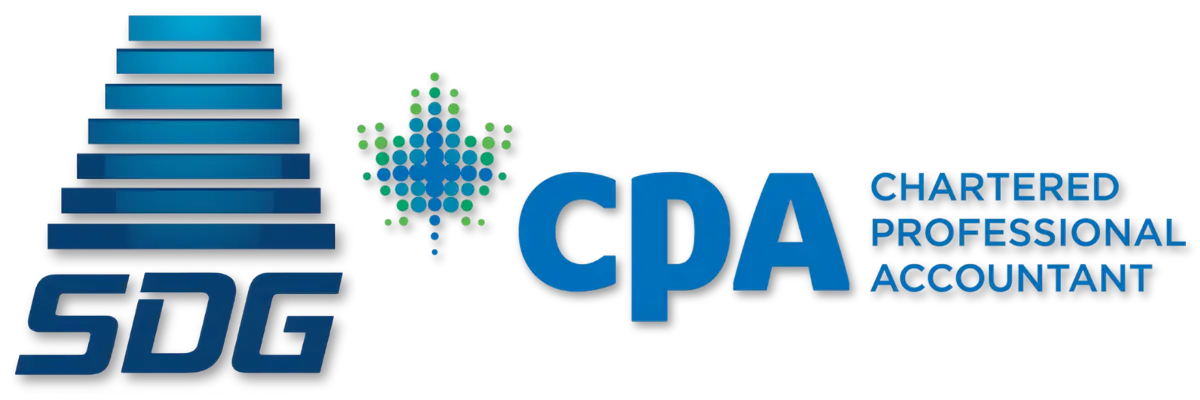
Today’s discussion is on the topic of filing requirements, specifically on residency and how to determine what may affect your residency in Canada and the associated tax implications. We are a Toronto accounting firm specializing in personal and corporate taxation. We help small businesses and individuals all over the Greater Toronto Area deal with complex situations regarding residency and tax filing obligations. The following are a few important issues regarding the taxation regarding residency:
- Income tax obligations in Canada based on residency
- Determining residency on a case-by-case basis and all the facts that must be considered
- Steps you can take to help make that determination
Step 1: Determine Residential Ties
When determining residential ties, some items are more important than others. Family members living in Canada and a home that you can come back to give you strong personal ties to Canada, so these are the first items that the CRA looks to determine if an individual is a resident. Other items will help to flesh out the full picture of whether someone is a resident, which will be used to make a determination in difficult circumstances. The following are some examples of ties used to determine residency:
- Significant Residential Ties: Home, Spouse, Dependents
- Secondary Residential Ties: Drivers License, Passport, Memberships, Car, Furniture, Bank Accounts, Credit Cards, Health Card/Insurance
For more information regarding determining residency, the CRA provides more information at the following address:
Step 2-A: Determine Status & Tax Implications
Leaving Canada
1.) Factual Resident
- If an individual is temporarily employed, vacationing, or attending school outside of Canada but maintains residential ties within Canada you may still be considered a factual resident.
- The Term factual resident means even though you left Canada, you are still considered a resident of Canada for Tax Purposes.
2.) Emigrant
- If you exited Canada and live in a new country with a permanent home while severing ties with Canada, ceasing to be a resident of Canada in the Tax Year you may be considered to be an emigrant.
- Emigrant for income tax purposes if:
- You Leave Canada to Live in Another Country
- You Sever Your Residential Ties with Canada
** If you leave Canada and maintain residential ties, usually considered factual resident.
3.) Deemed Non-Resident
- If you build ties with a Country that Canada has a Tax Treaty with and you’re a resident of that Country, but you maintain significant residential ties with Canada (factual resident of Canada) you may be considered a deemed non-resident of Canada.
** Deemed non-residents are equal to non-residents
4.) Special Cases
- If you left Canada and you are a member of the Canadian Armed forces or a government employee, you are usually considered a factual resident or a deemed resident of Canada. Refer to Government employees outside Canada for more information.
Entering Canada
1.) Immigrant
- If you left another country and established significant residential ties with Canada during the taxation year, you may be considered an immigrant
- Immigrant for tax purposes only applies for the first taxation year and thereafter a taxpayer would not be considered a newcomer to Canada.
2.) Deemed Non-Resident
- If you have ties with a country that Canada has a tax treaty with, and considered a resident of that country but also considered a factual resident of Canada (due to establishing significant ties with Canada during the year), you may be deemed a non-resident of Canada for tax purposes.
3.) Deemed Resident
- If you do not have significant ties with Canada to be considered a factual resident, you may be deemed a resident of Canada if you spend 183 days or more in Canada.
Canada Revenue Agency’s Opinion
- If there is much grey area and more light needs to be shed on the situation, CRA can assist in determining a tax payer’s residency status.
- File Form NR-74 (Entering Canada)
- File Form NR-73 (Leaving Canada)
Tax Obligations
As a factual resident you:
- Must report your world income (income from all sources, both inside and outside Canada) for the entire tax year;
- Can claim all deductions, federal, provincial, or territorial non-refundable and refundable tax credits, that apply to you;
- Must pay federal tax;
- Must pay provincial or territorial tax for the province or territory where you keep residential ties; and
- May be eligible for the GST/HST credit (goods and services tax/harmonized sales tax), the Canada child benefit.
For more information, see the General Income Tax and Benefit Guide.
As a deemed resident you:
- Must report your world income (income from all sources, both inside and outside Canada) for the entire tax year;
- Can claim all deductions and non-refundable tax credits that apply to you;
- Are subject to federal tax and instead of paying provincial or territorial tax you’ll pay a federal surtax;
- Can claim all federal tax credits, but you cannot claim provincial or territorial tax credits; and
- Are eligible for the goods and services tax/harmonized sales tax (GST/HST) credit.
This site provides general information on various tax issues and other matters. The information is not intended to constitute professional advice and may not be appropriate for a specific individual or fact situation. It is written by the author solely in their personal capacity and cannot be attributed to the accounting firm with which they are affiliated. It is not intended to constitute professional advice, and neither the author nor the firm with which the author is associated shall accept any liability in respect of any reliance on the information contained herein. Readers should always consult with their professional advisors in respect of their particular situation.
— Sami Ghaith, CPA
August 8th, 2017

